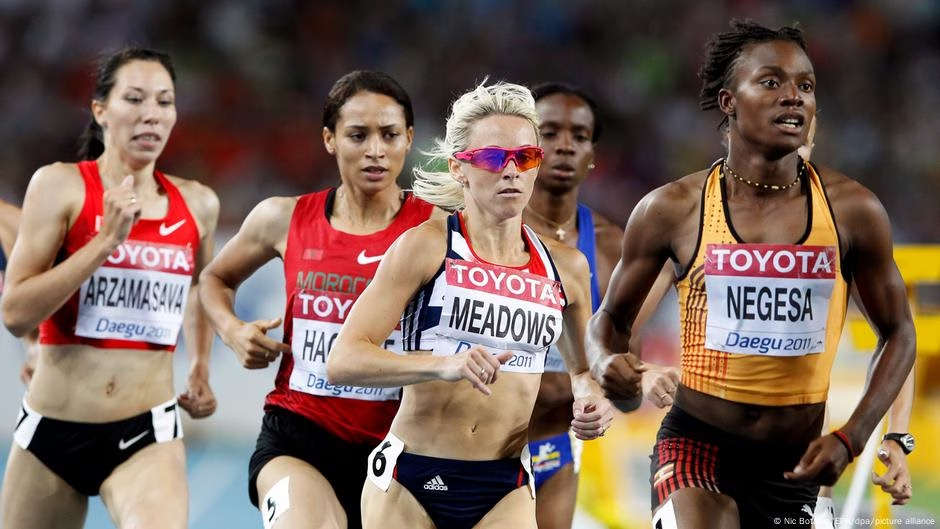Annet Negesa, a former Ugandan middle-distance runner, was once rising in the international sports arena.
She broke national records and won gold at the junior level at the age of 19, setting her eyes on the Olympics.
But preparing for the 2012 London Olympics, she faced a setback from which she couldn’t recover.
A Medical Decision With Consequences
While primed for her Olympic debut, Negesa was disqualified from competing due to her naturally high testosterone levels.
Under pressure and with the Olympics looming, she made a hastened decision, consenting to a medical procedure to manage her testosterone levels, hoping to compete still. Unaware of the lasting impact, she went through a procedure that jeopardized her athletic career and health.
World Athletics refuted any coercion in her medical pathway, affirming they offered guidance to athletes. They articulate their stance as necessary for competition’s integrity and fairness in women’s sports. Negesa contends it was a decision made without a full understanding of DSD (Disorders of Sex Development) athletes’ unique conditions and rights.
The Scrutiny of Rules Without Comprehension
Post-surgery, Negesa contended with health complications, leading to the collapse of her athletic career and scholarship.
Recognizing the broader implications, her voice became a catalyst for advocacy, spotlighting the critical need for understanding and compassion toward DSD athletes’ challenges.








